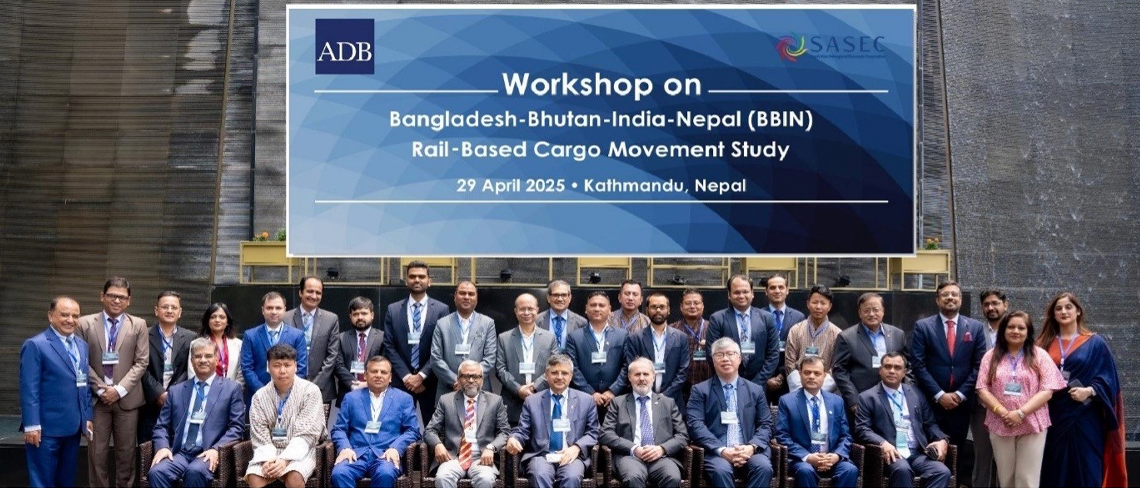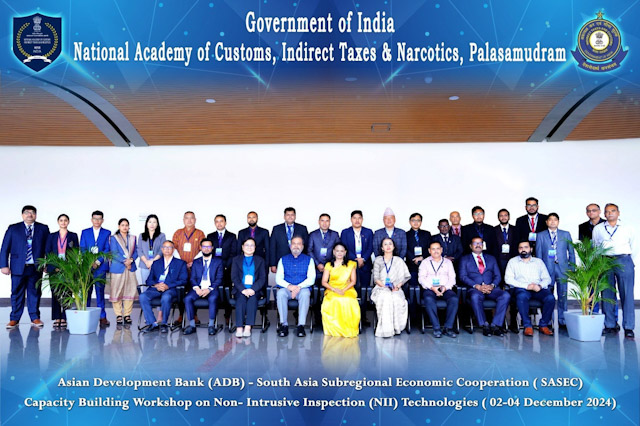
SASEC SPS-TBT Diagnostic Study for India: National Validation Meeting
11 Dec 2017

India’s Department of Commerce, Ministry of Commerce and Industry, together with the Asian Development Bank (ADB), held a National Validation Meeting with public- and private-sector stakeholders on 11 December 2017 in New Delhi, India, to share the draft final findings and recommendations of the sanitary-phytosanitary (SPS) and technical barriers to trade (TBT) national diagnostic study for India. This diagnostic study was launched at a national consultation meeting in November 2016, under the trade facilitation agenda of the South Asia Subregional Economic Cooperation (SASEC) Program. The validation meeting provided the opportunity for stakeholder comments and feedback on findings of the diagnostic study.
Given the reduction in tariffs over the last 30 years due to multilateral and bilateral obligations as well as autonomous economic liberalization, increasing importance is being directed toward addressing non-tariff measures (NTMs), which occur frequently in the form of standards and technical regulations, especially SPS and TBT. Accordingly, SASEC members agreed to develop mutual cooperation processes in the diverse and challenging area of SPS-TBT-related issues to address SPS- TBT barriers. As a first step, national diagnostic studies are under preparation in Bangladesh, Bhutan, India, Maldives, Nepal, and Sri Lanka. Wide-based stakeholder validation meetings are being held in each country as the draft final reports become available.
Outcomes of the validation meeting in India included:
- Presentation of patterns of India’s trade with other SASEC countries and identification of products with potential for export from India to other SASEC countries, noting SPS and TBT measures applied to the products, and which products fall under the SAFTA Sensitive List;
- An overview of the legislative environment, of institutional arrangements and capacities, and of infrastructure capacities and constraints, for both SPS and TBT, noting current gaps compared with international best practice;
- Presentation of India’s ongoing efforts and initiatives to address SPS-TBT-related issues and upgrade existing procedures;
- Analysis of the standards, regulations, and procedural obstacles that impede trade of the identified potential export products from India to other SASEC countries, and discussion on whether these obstacles are SPS-TBT-related, or due to other non-tariff measures or non-tariff barriers;
- Discussion and additional suggestions on preliminary recommendations for how to address SPS-TBT-related and other NTM issues faced by India.
Mr. Bhupinder Singh Bhalla, Joint Secretary, Department of Commerce, delivered the inaugural address, noting that South Asian intraregional trade potential has not yet been fully harnessed, despite efforts made in tariff reduction. He discussed the current imbalance of trade between the SASEC countries and the challenges of reducing the cost of trade to a minimum. Joint Secretary stated that the SASEC national and regional diagnostic studies will serve as a starting point for cooperation among the South Asian countries in SPS-TBT.
Thirty-three participants attended the validation meeting from relevant government agencies, together with representatives from the private sector. ADB supported the validation meeting under regional technical assistance funding.










